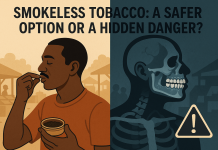Lung cancer is such a bad condition that you don’t even wish your enemy to have. Presently, just like most cancers, it has no cure. And early detection is key! If detected early, early stage non-small cell lung cancer can be taken care of through surgery. But for advanced stage non-small cell lung cancer and small cell lung cancer, chemotherapy is the best option. While it’s okay to dread this condition, it is also important to know the symptoms involved. That’s because most people that have had lung cancer dismissed the early symptoms that would have led to early detection. So, here goes:
- Chronic, hacking, raspy coughing, sometimes with mucus that has blood in it.
- Chest pain that is often worse with deep breathing, coughing, or laughing.
- Shortness of breath that gets worse, wheezing, lasting chest pain.
- Hoarseness.
- Weight loss and loss of appetite.
- Shortness of breath.
- Swelling of the neck and face
- Feeling tired or weak.
- Infections such as bronchitis and pneumonia that keep coming back.
- Pain and weakness in the shoulder, arm, or hand
- Fatigue, weakness, loss of weight and appetite, fever that comes and goes, severe headaches, and body pain
- Trouble swallowing
These problems usually happen because of blocked breathing passages or because the cancer has spread further into the lung, nearby areas, or other parts of the body.
If lung cancer spreads to distant organs, it may cause:
- Bone pain (like pain in the back or hips).
- Nervous system changes (such as headache, weakness or numbness of an arm or leg, dizziness, balance problems, or seizures), from cancer spread to the brain or spinal cord.
- Yellowing of the skin and eyes (jaundice), from cancer spread to the liver.
In conclusion, it’s obvious that the early symptoms of lung cancer are nonspecific. That is why it may be easily confused for other respiratory diseases at the early stage. For avoidance of doubts, see a doctor.









